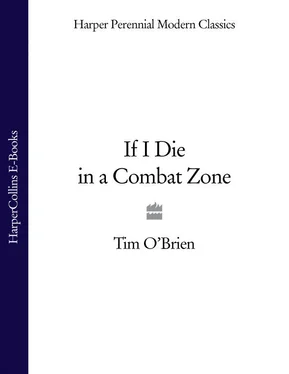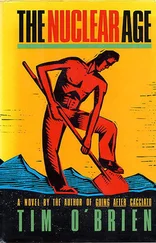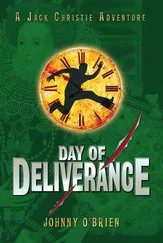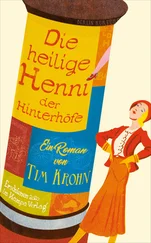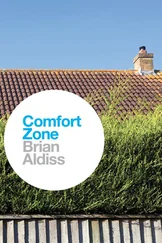I couldn’t hit a baseball. Too small for football, but I stuck it out through junior high, hoping something would change. When nothing happened, I began to read. I read Plato and Erich Fromm, the Hardy boys and enough Aristotle to make me prefer Plato. The town’s library was quiet and not a very lively place – nothing like the football field on an October evening and not a very good substitute – nothing like screaming for blood, nothing like aching with filial pride, nothing like hearty masculine well-being.
I watched the athletes from the stands and cheered them at pep rallies, wishing I were with them. I went to homecoming dances, learned to drive an automobile, joined the debate team, took girls to drive-in theatres and afterwards to the A & W root-beer stand.
I took up an interest in politics. One evening I put on a suit and drove down to the League of Women Voters meeting, embarrassing myself and some candidates and most of the women voters by asking questions that had no answers.
I tried going to Democratic party meetings. I’d read it was the liberal party. But it was futile. I could not make out the difference between the people there and the people down the street boosting Nixon and Cabot Lodge. The essential thing about the prairie, I learned, was that one part of it is like any other part.
At night I sometimes walked about the town. ‘God is both transcendent and imminent. That’s Tillich’s position.’ When I walked, I chose the darkest streets, away from the street lights. ‘But is there a God? I mean, is there a God like there’s a tree or an apple? Is God a being?’ I usually ended up walking towards the lake. ‘God is Being-Itself.’ The lake, Lake Okabena, reflected the town-itself, bouncing off a black-and-white pattern identical to the whole desolate prairie: flat, tepid, small, strangled by algae, shut in by middle-class houses, lassoed by a ring of doctors, lawyers, CPAs, dentists, drugstore owners, and proprietors of department stores. ‘Being-Itself? Then is this town God? It exists, doesn’t it?’ I walked past where the pretty girls lived, stopping long enough to look at their houses, all the lights off and the curtains drawn. ‘Jesus,’ I muttered, ‘I hope not. Maybe I’m an atheist.’
One day in May the high school held graduation ceremonies. Then I went away to college, and the town did not miss me much.
The summer of 1968, the summer I turned into a soldier, was a good time for talking about war and peace. Eugene McCarthy was bringing quiet thought to the subject. He was winning votes in the primaries. College students were listening to him, and some of us tried to help out. Lyndon Johnson was almost forgotten, no longer forbidding or feared; Robert Kennedy was dead but not quite forgotten; Richard Nixon looked like a loser. With all the tragedy and change that summer, it was fine weather for discussion.
And, with all of this, there was an induction notice tucked into a corner of my billfold.
So with friends and acquaintances and townspeople, I spent the summer in Fred’s antiseptic café, drinking coffee and mapping out arguments on Fred’s napkins. Or I sat in Chic’s tavern, drinking beer with kids from the farms. I played some golf and tore up the pool table down at the bowling alley, keeping an eye open for likely-looking high school girls.
Late at night, the town deserted, two or three of us would drive a car around and around the town’s lake, talking about the war, very seriously, moving with care from one argument to the next, trying to make it a dialogue and not a debate. We covered all the big questions: justice, tyranny, self-determination, conscience and the state, God and war and love.
College friends came to visit: ‘Too bad, I hear you’re drafted. What will you do?’
I said I didn’t know, that I’d let time decide. Maybe something would change, maybe the war would end. Then we’d turn to discuss the matter, talking long, trying out the questions, sleeping late in the mornings.
The summer conversations, spiked with plenty of references to the philosophers and academicians of war, were thoughtful and long and complex and careful. But, in the end, careful and precise argumentation hurt me. It was painful to tread deliberately over all the axioms and assumptions and corollaries when the people on the town’s draft board were calling me to duty, smiling so nicely.
‘It won’t be bad at all,’ they said. ‘Stop in and see us when it’s over.’
So to bring the conversation to a focus and also to try out in real words my secret fears, I argued for running away.
I was persuaded then, and I remain persuaded now, that the war was wrong. And since it was wrong and since people were dying as a result of it, it was evil. Doubts, of course, hedged all this: I had neither the expertise nor the wisdom to synthesize answers; most of the facts were clouded, and there was no certainty as to the kind of government that would follow a North Vietnamese victory or, for that matter, an American victory, and the specifics of the conflict were hidden away – partly in men’s minds, partly in the archives of government, and partly in buried, irretrievable history. The war, I thought, was wrongly conceived and poorly justified. But perhaps I was mistaken, and who really knew, anyway?
Piled on top of this was the town, my family, my teachers, a whole history of the prairie. Like magnets, these things pulled in one direction or the other, almost physical forces weighting the problem, so that, in the end, it was less reason and more gravity that was the final influence.
My family was careful that summer. The decision was mine and it was not talked about. The town lay there, spread out in the corn and watching me, the mouths of old women and Country Club men poised in a kind of eternal readiness to find fault. It was not a town, not a Minneapolis or New York, where the son of a father can sometimes escape scrutiny. More, I owed the prairie something. For twenty-one years I’d lived under its laws, accepted its education, eaten its food, wasted and guzzled its water, slept well at night, driven across its highways, dirtied and breathed its air, wallowed in its luxuries. I’d played on its Little League teams. I remembered Plato’s Crito , when Socrates, facing certain death – execution, not war – had the chance to escape. But he reminded himself that he had seventy years in which he could have left the country, if he were not satisfied or felt the agreements he’d made with it were unfair. He had not chosen Sparta or Crete. And, I reminded myself, I hadn’t thought much about Canada until that summer.
The summer passed this way. Gold afternoons on the golf course, a comforting feeling that the matter of war would never touch me, nights in the pool hall or drug store, talking with townsfolk, turning the questions over and over, being a philosopher.
Near the end of that summer the time came to go to the war. The family indulged in a cautious sort of Last Supper together, and afterwards my father, who is brave, said it was time to report at the bus depot. I moped down to my bedroom and looked the place over, feeling quite stupid, thinking that my mother would come in there in a day or two and probably cry a little. I trudged back up to the kitchen and put my satchel down. Everyone gathered around, saying so long and good health and write and let us know if you want anything. My father took up the induction papers, checking on times and dates and all the last-minute things, and when I pecked my mother’s face and grabbed the satchel for comfort, he told me to put it down, that I wasn’t supposed to report until tomorrow.
After laughing about the mistake, after a flush of red colour and a flood of ribbing and a wave of relief had come and gone, I took a long drive around the lake, looking again at the place. Sunset Park, with its picnic table and little beach and a brown wood shelter and some families swimming. The Crippled Children’s School, Slater Park, more kids. A long string of split level houses, painted every colour.
Читать дальше
